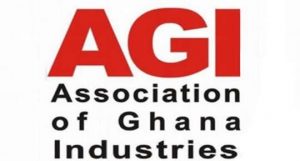For the country to enjoy the full benefits of the local content policy in the mining industry, it must ensure that the local companies in the supply chain are producing more of the mining goods within the country, the immediate past President of the Chamber, Eric Asubonteng, has said.
He said although the mining companies were committed to the local content policy, with over 75 per cent, their mining spend going to local companies, the money left the shores of the country, as most of the mining companies ended up importing the goods.
In an interview with the Graphic Business, he said “what we need to look at is that the mining companies can spend all these money through local companies but beyond that what happens?
“If the local companies supply goods to the mining companies, the perspective is that the money has been spent on a local company but if that local company turns around and import the goods then immediately that money leave the shores of Ghana as well,” he explained.
He said the issue about local content must, therefore, not be left to the mining companies alone as it required the collaboration of all stakeholders to ensure that the country derived the maximum benefit.
“If not we will continue to spend the money and it goes outside the system and we don’t get full benefits,” he stated.
Building local capacity
He said the chamber had already commenced a number of initiatives to ensure that some of the mining goods were produced locally.
Consequently, he said the chamber recently brought together the University of Mines and Technology and local company Zaacoal Company Limited to sign a joint venture for the production of activated carbon locally.
It is estimated that mining companies in the country spends about $7.5 million annually to import activated carbon, which is a major input in the gold production process.
The agreement would see Zaacoal Limited producing the first activated carbon in large quantities locally, using a technology designed and developed by UMaT.
All mining companies committed
Mr Asubonteng, who is the Managing Director for Anglogold Ashanti, said all mining companies in the country had been committed to local content even before the local content policy was introduced.
“My colleagues in the industry are very passionate about local content and have taken steps and initiatives to grow the participation of Ghanaian companies in our value chain and we started this even before the regulators came in,” he stated.
At Anglogold Ashanti, he said, although underground mining was an area where the industry struggled to get a Ghanaian company operating in that space, it had been able to orchestrate a joint venture company between an experienced underground mining contractor and a Ghanaian company and gave them the biggest contract of the mine which was the underground mining.
“They have been at it for the past three years and the intention behind this is that, over the years, the Ghanaian company would also build some expertise in underground mining.
“To facilitate the joint venture, we even bought the equipment that will be required to start off. If there was any financial hurdles for the Ghanaian entity to climb before it participated, by buying the equipment, it reduces that financial burden,” he noted.
Ghana as a mining hub
On positioning Ghana as a mining hub in West Africa, he said the chamber had over the years collaborated with the government in achieving that vision.
“Very often, a comparison is made between South Africa and Ghana, considering that South Africa has benefited so much from mining and it’s visible unlike Ghana.
“But this is partly because South Africa has positioned itself as the hub of mining in Africa so all the big mining companies, service providers, and suppliers, will always have their headquarters in South Africa and operate from there and by doing that, you draw far more value into that country beyond what is produced,” he explained.
“The West Africa sub region is increasing its prominence in terms of global mining and a lot of mines are now being set up. So, if Ghana can position itself properly, then we could accrue far more benefits into the country beyond what we are producing.
“We have the first mover advantage over here because we have a longer mining history, we have very strong mining institutions and a strong regulatory regime. Some of these mining jurisdictions in the sub region come to Ghana to learn from our regulation and monitoring regimes,” he pointed out.
He said Ghana had the advantages and stand a good chance of becoming the mining hub in the sub region.
To this end, he said the chamber had commissioned a study which was expected to be ready by year end on how the country could practically achieve this.







